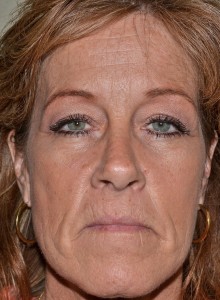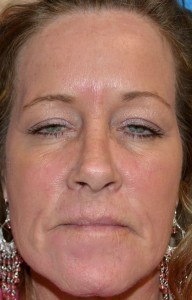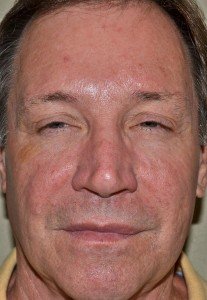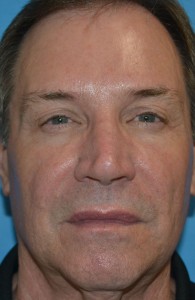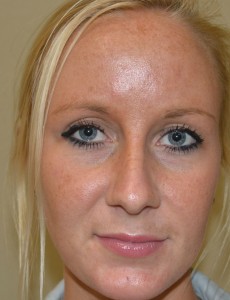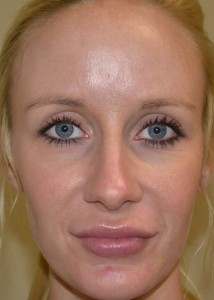That tattoo on your arm of a former flame—the one that seemed like a great idea years ago—is kind of embarrassing today. And your spouse is not too crazy about it either.
You may not know that FDA considers the inks used in tattoos to be cosmetics, and the agency takes action to protect consumers when safety issues arise related to the inks.
At the other end of the tattoo process, FDA also regulates laser devices used to remove tattoos.
FDA has cleared for marketing several types of lasers as light-based, prescription devices for tattoo lightening or removal. A Massachusetts company recently received FDA clearance to market its laser workstation for the removal of tattoos and benign skin lesions.
According to a poll conducted, 1 in 8 (14%) of the 21% of American adults who have tattoos regret getting one. And the American Society for Dermatologic Surgery (ASDS) reports that in 2011, its doctors performed nearly 100,000 tattoo removal procedures, up from the 86,000 performed in 2010.
Unfortunately, removing a tattoo is not as simple as changing your mind.
Artists create tattoos by using an electrically powered machine that moves a needle up and down to inject ink into the skin, penetrating the epidermis, or outer layer, and depositing a drop of ink into the dermis, the second layer. The cells of the dermis are more stable compared with those of the epidermis, so the ink will mostly stay in place for a person’s lifetime. Tattoos are meant to be permanent.
An effective and safe way to remove tattoos is through laser removal, performed by a doctor who specializes in tattoo removal.
Lasers Used for Decades
“Laser” stands for Light Amplification by Stimulated Emission of Radiation. Pulsed lasers, which emit concentrated light energy in short bursts, or pulses, have been used to remove tattoos for more than 20 years. However, it can be a painstaking process. Complete removal, with no scarring, is sometimes not possible.
FDA clearance means this method for removing tattoos complies with agency requirements for safety and effectiveness. Other methods include dermabrasion—actually “sanding” away the top layer of skin—and excision—cutting away the area of the tattoo and then sewing the skin back together.
There are also do-it-yourself tattoo removal ointments and creams that you can buy online. FDA has not approved these ointments and creams, and is not aware of any clinical evidence that they work. In addition, tattoo removal ointments and creams may cause unexpected reactions, such as rashes, burning, scarring, or changes in skin pigmentation in the process.
How Does It Work?
With laser removal, pulses of high-intensity laser energy pass through the epidermis and are selectively absorbed by the tattoo pigment. The laser breaks the pigment into smaller particles, which may be metabolized or excreted by the body, or transported to and stored in lymph nodes or other tissues.
The type of laser used to remove a tattoo depends on the tattoo’s pigment colors, he adds. Because every color of ink absorbs different wavelengths of light, multi-colored tattoos may require the use of multiple lasers. Lighter colors such as green, red, and yellow are the hardest colors to remove, while blue and black are the easiest.
Does It Hurt?
Some people compare the sensation of laser removal to being spattered with drops of hot bacon grease or snapping a thin rubber band against the skin. A trained doctor will be able to adjust the treatment to the patient’s comfort level.
Generally speaking, just one laser treatment won’t do the trick. According to the American Academy of Dermatology, the procedure requires multiple treatments (typically six to 10) depending on a tattoo’s size and colors, and requires 6 weeks of healing time between procedures. Some side effects may include pinpoint bleeding, redness, or soreness, none of which should last for long.
Laser devices are cleared for use by, or under the supervision of, a health care professional. The removal procedure requires using the correct type of laser, understanding the reaction of tissue to laser, and knowing how to treat the area after the procedure.
If you have any concerns about having a tattoo removed, it’s a good idea to consult your doctor, who is knowledgeable about laser treatments.
Our state of the art equipment can help patients see their tattoos fade by 95% or more over the course of multiple treatments. 8-10 treatments is recommended at every 6-8 weeks. Please call the office of Dr. Bishara and The Paragon Med Spa at (817) 473-2120, for more information and to schedule a consultation appointment.

